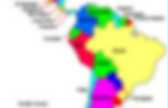

Teaching Neoliberalism In/Of Latin America — Cultural Anthropology. In the following series of posts, I will share resources and suggestions for teaching about neoliberalism in Latin America. These resources are aimed primarily at the undergraduate level but may be helpful for graduate seminars as well. Overview of Theme Neoliberalism has existed in a number of related forms for hundreds of years, but its contemporary, orthodox form was first attempted in Chile following the overthrow of socialist President Salvador Allende in 1973.
A team of University of Chicago economists, trained by Milton Friedman, worked with the IMF (International Monetary Fund) and dictator General Augusto Pinochet to completely restructure Chile’s economy, privatizing almost all public assets and violently repressing protestors and suspected sympathizers (Harvey 2005a:8; Hershberg and Rosen 2006b:4; Klein 2007:76-85; Winn 2004). Since the 1970s, it has expanded to become the dominant model for not only economic policies, but social and political policies as well. But what is it? The Journal of Latin American and Caribbean Anthropology. Teaching Anthropology of Latin America and the Caribbean.
I teach “Peoples and Cultures of Latin America and the Caribbean” as a one-month January-term course. This is a difficult class to teach. It may be an old adage that it is most difficult to teach the closest material, perhaps because I care more about it, or perhaps because I know more and so realize how much I am bungling, but it definitely applies to this course. I’ve almost completely revamped the book list four times, and am always looking for new readings: Latin America Book Updates: For a short Latin America bibliography from January 2012 see Anthropology of Latin America and Caribbean.
See also the Latin America and Caribbean Anthropology: Book Update from November 2013 and Anthropologists Studying Immigration in the United States from May 2013. One of the difficulties is simply the impossibility of “covering” an anthropology of Latin America and the Caribbean, which involves thousands of years of history, hundreds of languages, and a great diversity of populations. , Sidney W. SOCIETY FOR LATIN AMERICAN AND CARIBBEAN ANTHROPOLOGY (SLACA) Latin American Studies Association (LASA)